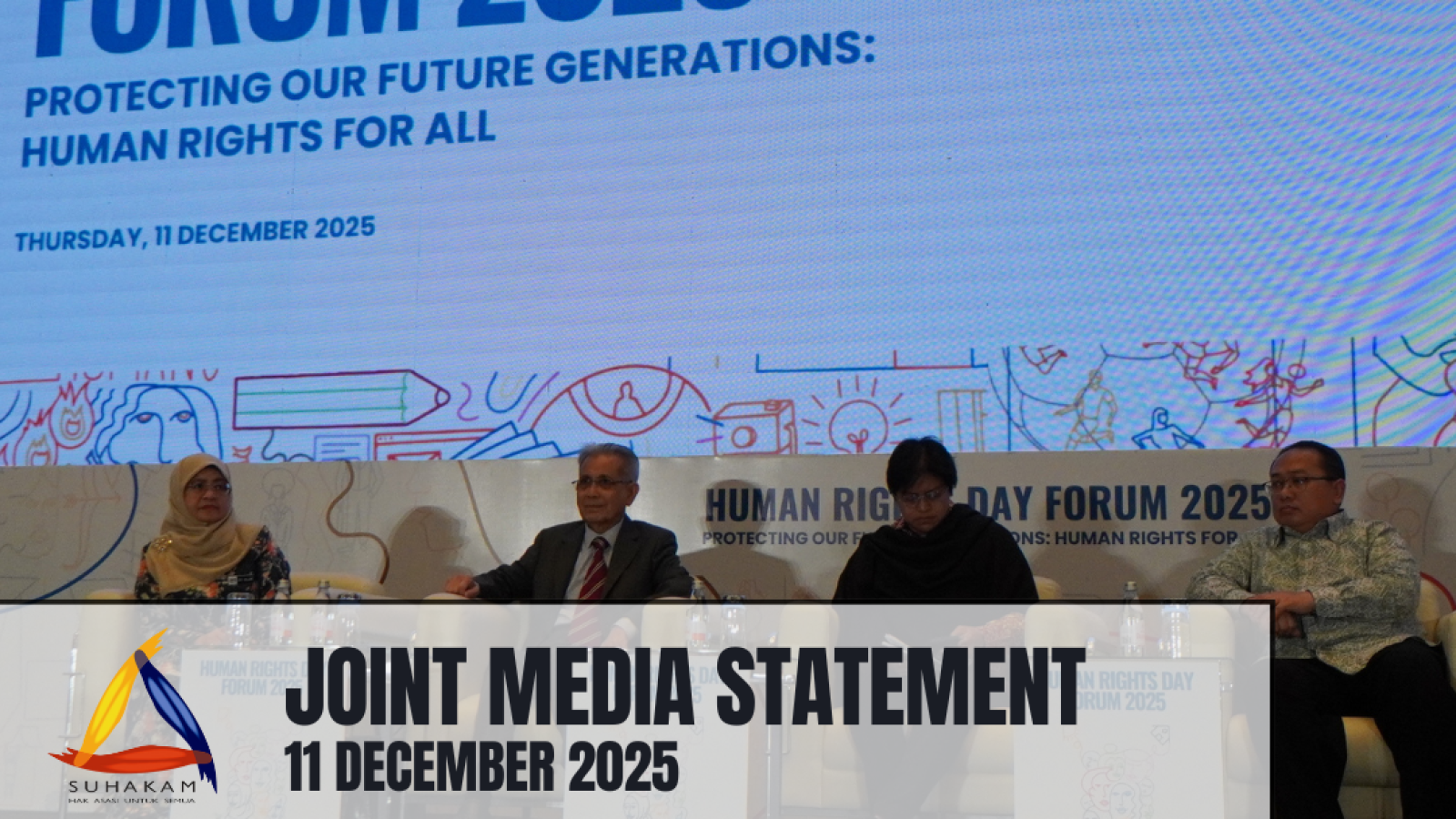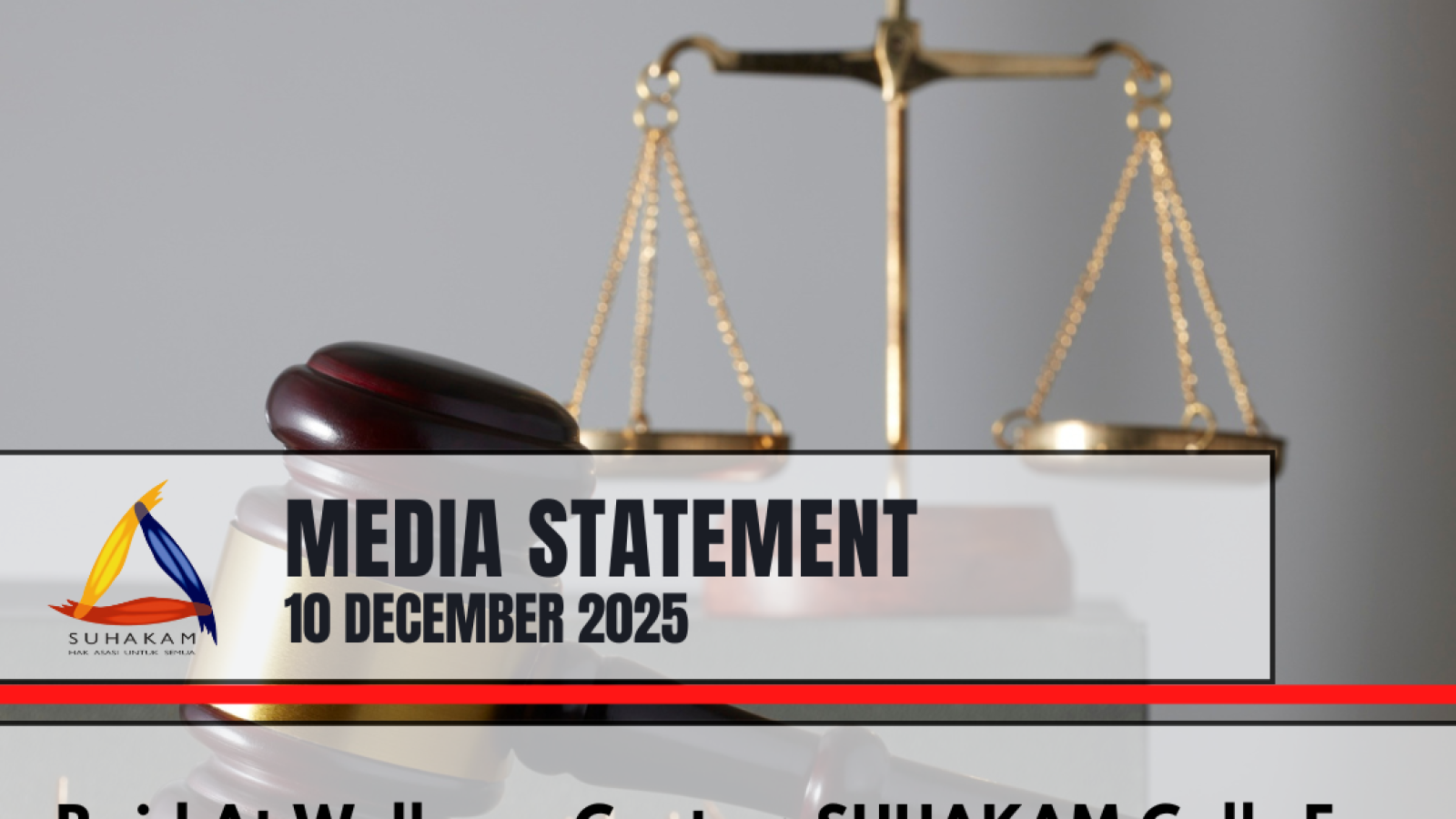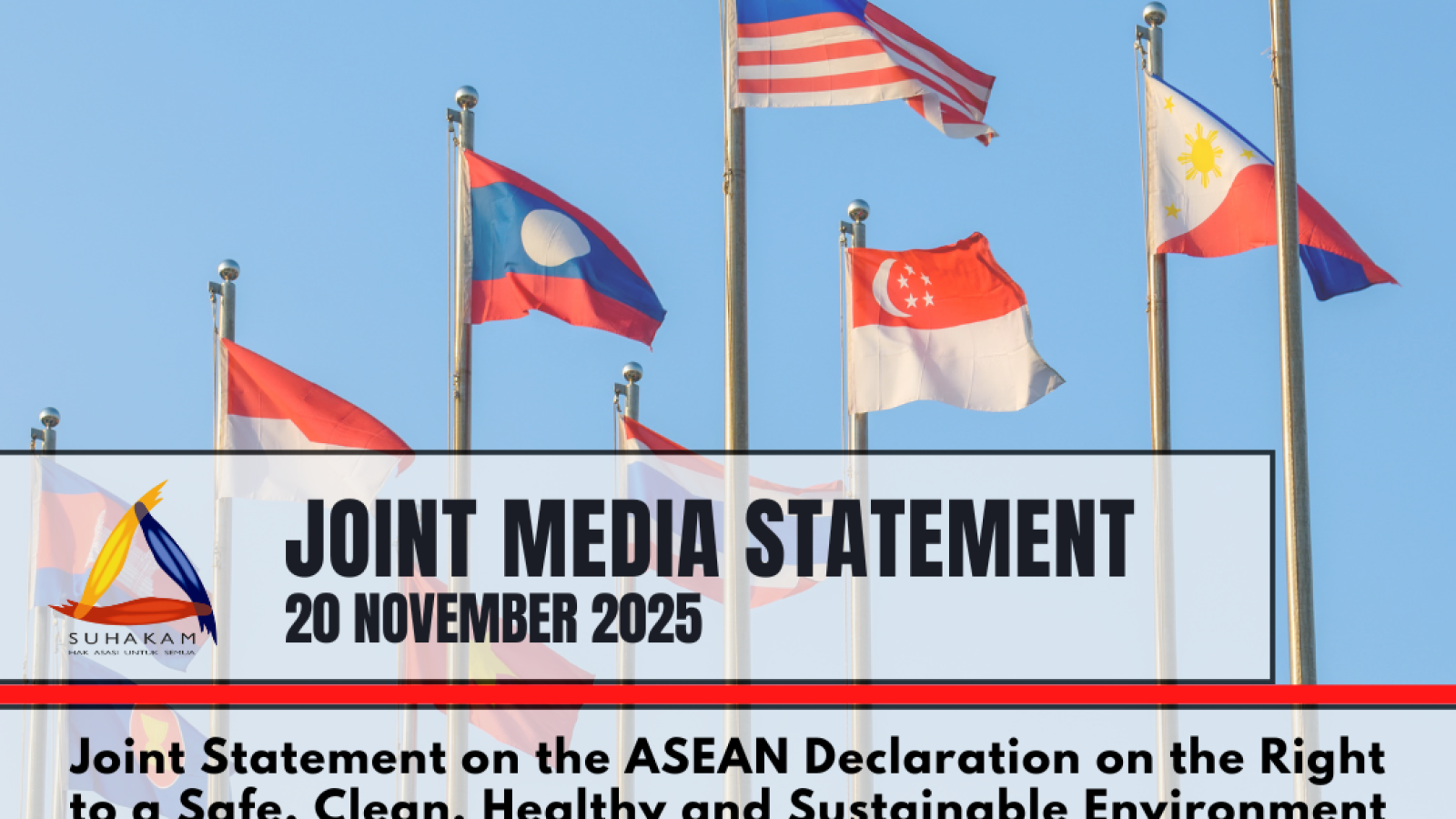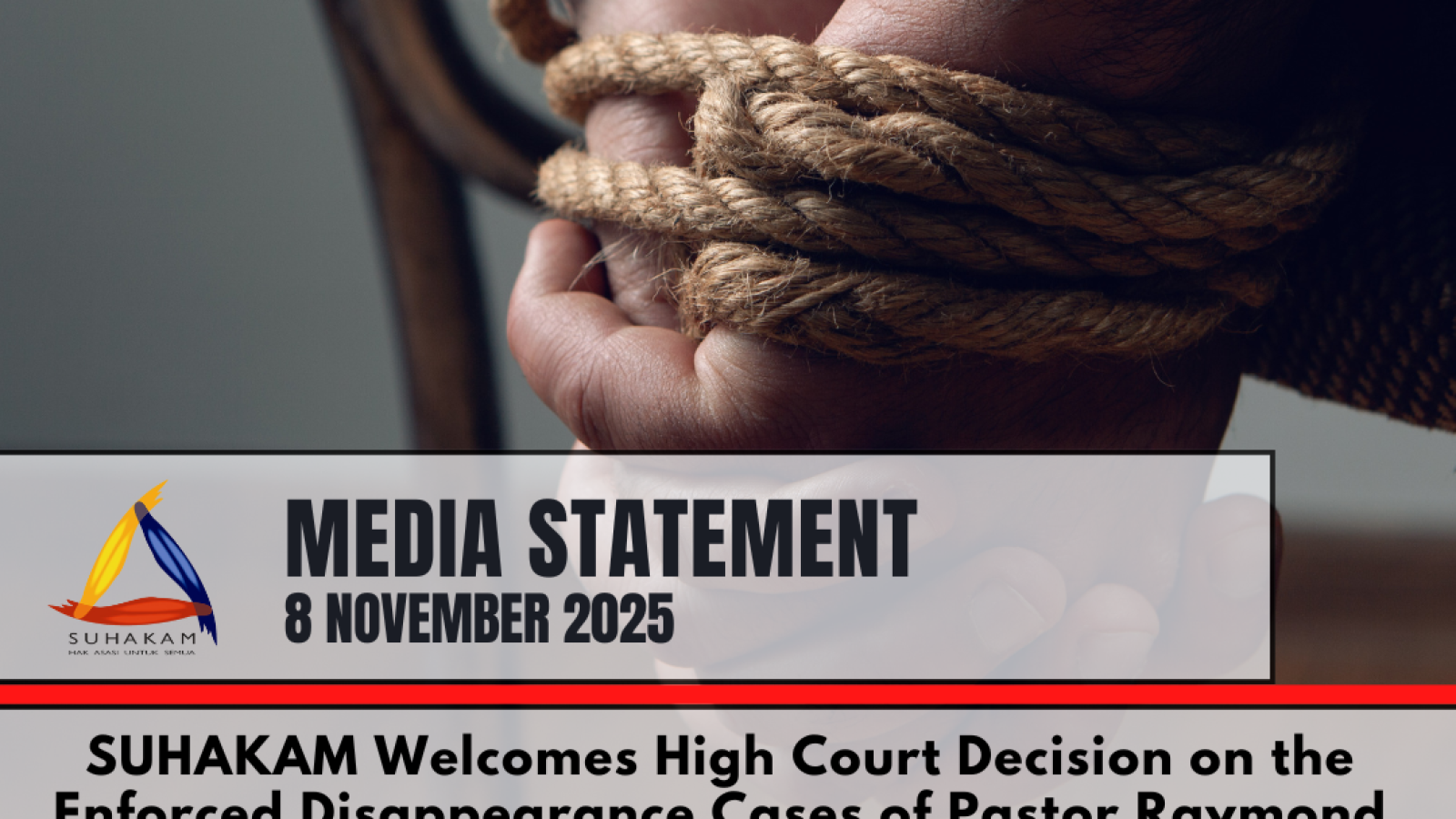MALAYSIA SAMBUT HARI HAK ASASI MANUSIA 2025
KUALA LUMPUR, 11 Disember 2025 Bahagian Hal Ehwal Undang-Undang Jabatan Perdana Menteri (BHEUU), Kementerian Luar Negeri (KLN), Suruhanjaya Hak Asasi Manusia Malaysia (SUHAKAM) dan Pertubuhan Bangsa-Bangsa Bersatu di Malaysia memperingati Hari Hak Asasi Manusia 2025 dengan menganjurkan sebuah forum bertajuk “Melindungi Generasi Masa Hadapan: Hak Asasi untuk Semua.”
Forum ini telah dirasmikan oleh Yang Berhormat Dato’ Sri Azalina Othman Said, Menteri di Jabatan Perdana Menteri (Undang-Undang dan Reformasi Institusi). Dalam ucapannya, YB Dato’ Sri Azalina menegaskan bahawa melindungi hak dan maruah setiap kanak-kanak bukanlah satu pilihan, ia merupakan asas kekuatan moral Malaysia dan tanggungjawab bersama terhadap generasi akan datang. Seiring dengan evolusi ancaman yang semakin kompleks, beliau menegaskan bahawa undang-undang dan institusi perlu berkembang dengan lebih pantas. Hak asasi manusia akan berjaya dengan adanya sistem yang berwibawa, telus dan bertanggungjawab. Kanak-kanak tidak seharusnya menderita dalam senyap, sama ada dalam atau luar talian, dan dasar yang melibatkan kanak-kanak tidak boleh digubal tanpa suara mereka didengari. YB Dato’ Sri Azalina turut menyatakan komitmen Kerajaan untuk membina Malaysia yang mana setiap kanak-kanak dilindungi, dihargai dan diperkasa untuk mengejar impian serta menjalani kehidupan sepenuhnya.
Pengerusi SUHAKAM, Yang Berbahagia Dato’ Seri Mohd Hishamudin Yunus dalam ucapannya menyebut bahawa selaras dengan tema tahun ini, adalah penting untuk kita menyedari bahawa perlindungan generasi masa hadapan memerlukan komitmen berterusan terutamanya dalam pembangunan dasar, akauntabiliti institusi dan kesedaran awam. YBhg. Dato’ Seri Mohd Hishamudin turut menekankan bahawa hak asasi manusia adalah tanggungjawab bersama yang melibatkan kerjasama agensi kerajaan, pertubuhan masyarakat sivil, para pendidik, ibu bapa dan komuniti.
Dalam ucapan pembukaan beliau, Encik Robert Gass, Pemangku Penyelaras Residen PBB, menyatakan bahawa hak asasi manusia dinikmati atau dinafikan dalam kehidupan seharian setiap kanak-kanak, sama ada dalam aspek keselamatan di rumah, kesamarataan dalam bilik darjah, keadilan di mahkamah, dan maruah ketika berada di klinik. Dalam usaha Malaysia memperkukuh institusi dan memperbaharui komitmennya di bawah Konvensyen mengenai Hak Kanak-Kanak (CRC), perlu diingatkan bahawa kanak-kanak bukan penerima pasif tetapi pemegang hak yang masa depannya bergantung pada keputusan yang dibuat pada hari ini. Tugasnya mudah tetapi mendalam iaitu untuk merapatkan jurang antara hak yang diisytiharkan dan realiti yang dialami oleh kanak-kanak.
Hari Hak Asasi Manusia memperingati penggubalan Perisytiharan Hak Asasi Manusia Sejagat. Tema tahun ini, “Hak Asasi: Keperluan Harian Kita,” amat signifikan bagi Malaysia kerana tahun ini merupakan 30 tahun penyertaan Malaysia kepada CRC dan Konvensyen tentang Penghapusan Segala Bentuk Diskriminasi terhadap Wanita (CEDAW), serta 15 tahun meratifikasi Konvensyen tentang Orang Kurang Upaya (CRPD). Komitmen antarabangsa ini telah mencorakkan pelbagai pembaharuan nasional. Seiring persiapan Malaysia untuk sesi libat urus bersama Jawatankuasa Hak Kanak-Kanak pada tahun 2026, forum ini menegaskan akan kepentingan untuk mengekalkan momentum positif melalui dialog berterusan, pambangunan kapasiti, dan kerjasama antara institusi yang kukuh.
Forum yang dikendalikan oleh Puan Sitti Najihah Md Rusli dari UNICEF Malaysia, membincangkan mengenai “Hak Kanak-Kanak di Malaysia: Daripada Komitmen kepada Pemantauan dan Akauntabiliti”. Forum ini menampilkan panelis daripada pelbagai latar belakang iaitu Dr. Farah Nini Dusuki, Pesuruhjaya Kanak-Kanak, SUHAKAM; Encik Asmar Asmadi Bin Abdullah Sani, Setiausaha Bahagian Dasar dan Perancangan Strategik, KPWKM; YA Datin Paduka Evrol Mariette Peters, Hakim Mahkamah Rayuan, mewakili badan kehakiman; Yang Berhormat Syereleena Abdul Rashid, Ahli Parlimen Bukit Bendera dan Ahli Jawatankuasa Pilihan Khas Parlimen bagi Wanita, Kanak-Kanak dan Pembangunan Komuniti; Encik Thiyagu Ganesan, Timbalan Ketua Pengarah (Reformasi Undang-Undang), BHEUU dan Cik Jessie Lee Jie Xing, wakil belia dan Ahli Majlis Konsultatif Kanak-Kanak (2025–2027), SUHAKAM.
Forum ini turut menyaksikan pelancaran modul “Belia Peduli Hak” oleh Menteri di Jabatan Perdana Menteri (Undang-Undang dan Reformasi Institusi). Modul ini adalah sumber praktikal yang dibangunkan oleh SUHAKAM untuk meningkatkan kesedaran, pemerkasaan dan penyertaan bermakna dalam kalangan belia di seluruh negara.
Dalam ucapan penutupnya, Yang Berbahagia Datin Paduka Anizan Siti Hajjar Adnin, Timbalan Ketua Setiausaha KLN, menegaskan bahawa perlindungan kanak-kanak memerlukan pendekatan menyeluruh melibatkan seluruh masyarakat. Pendekatan ini perlu diperkukuh melalui kerjasama erat dengan pertubuhan masyarakat sivil bagi meningkatkan ketelusan dan akauntabiliti. YBhg. Datin Paduka Anizan Siti Hajjar turut menekankan bahawa komitmen ini mencerminkan aspirasi Malaysia Madani, yang berteraskan kepercayaan, kerjasama serta usaha membangunkan sebuah masyarakat yang inklusif, ihsan dan berkeprihatinan untuk semua rakyat Malaysia.
Forum hibrid ini telah dihadiri oleh lebih daripada 450 peserta daripada kalangan Kerajaan, kor diplomatik, belia, akademik, sektor swasta, pertubuhan masyarakat sivil dan media.
Disediakan bersama oleh:
BAHAGIAN HAL EHWAL UNDANG- UNDANG, JABATAN PERDANA MENTERI (BHEUU)
KEMENTERIAN LUAR NEGERI MALAYSIA (KLN)
SURUHANJAYA HAK ASASI MANUSIA MALAYSIA (SUHAKAM)
PERTUBUHAN BANGSA-BANGSA BERSATU Di MALAYSIA (UNCT)











